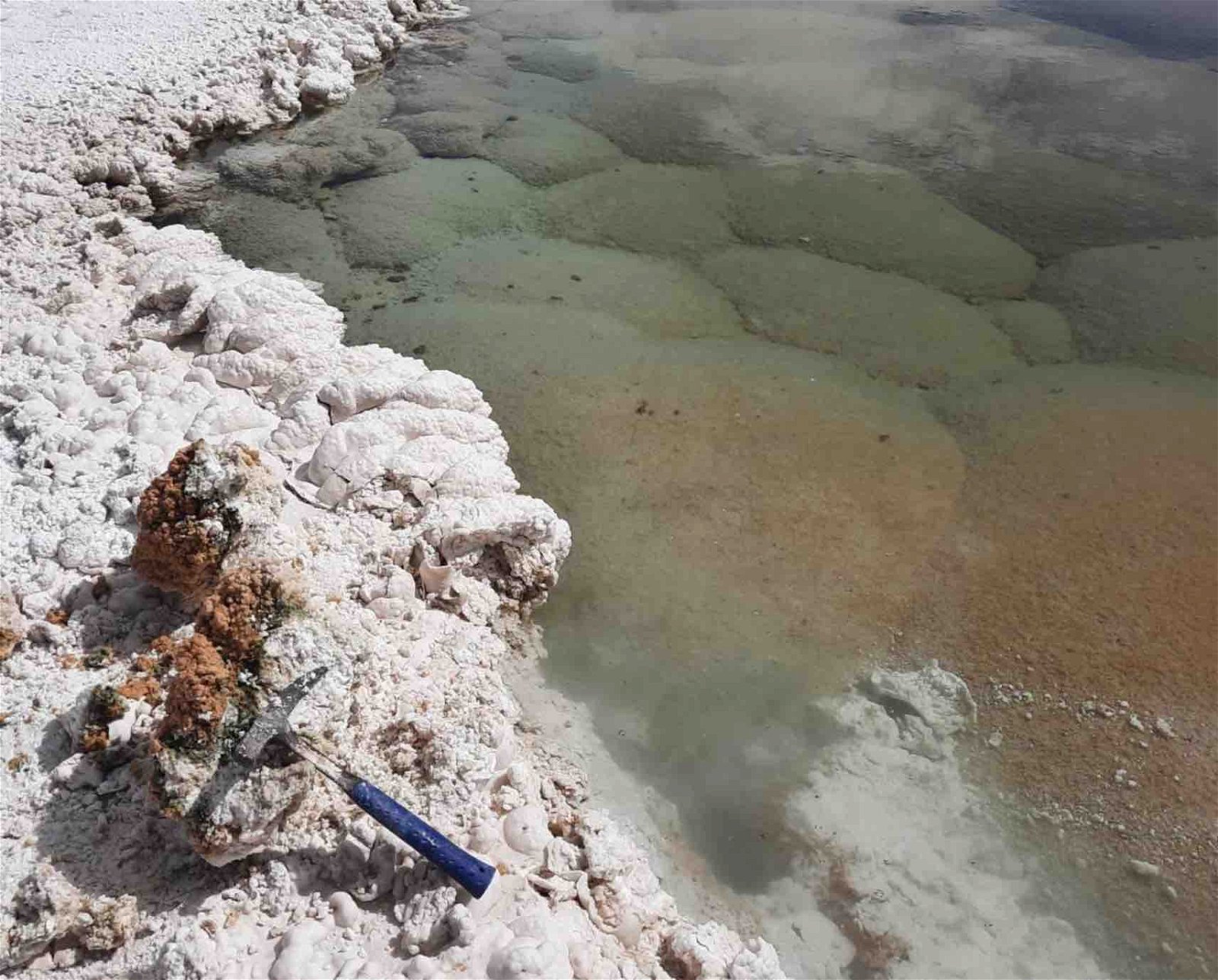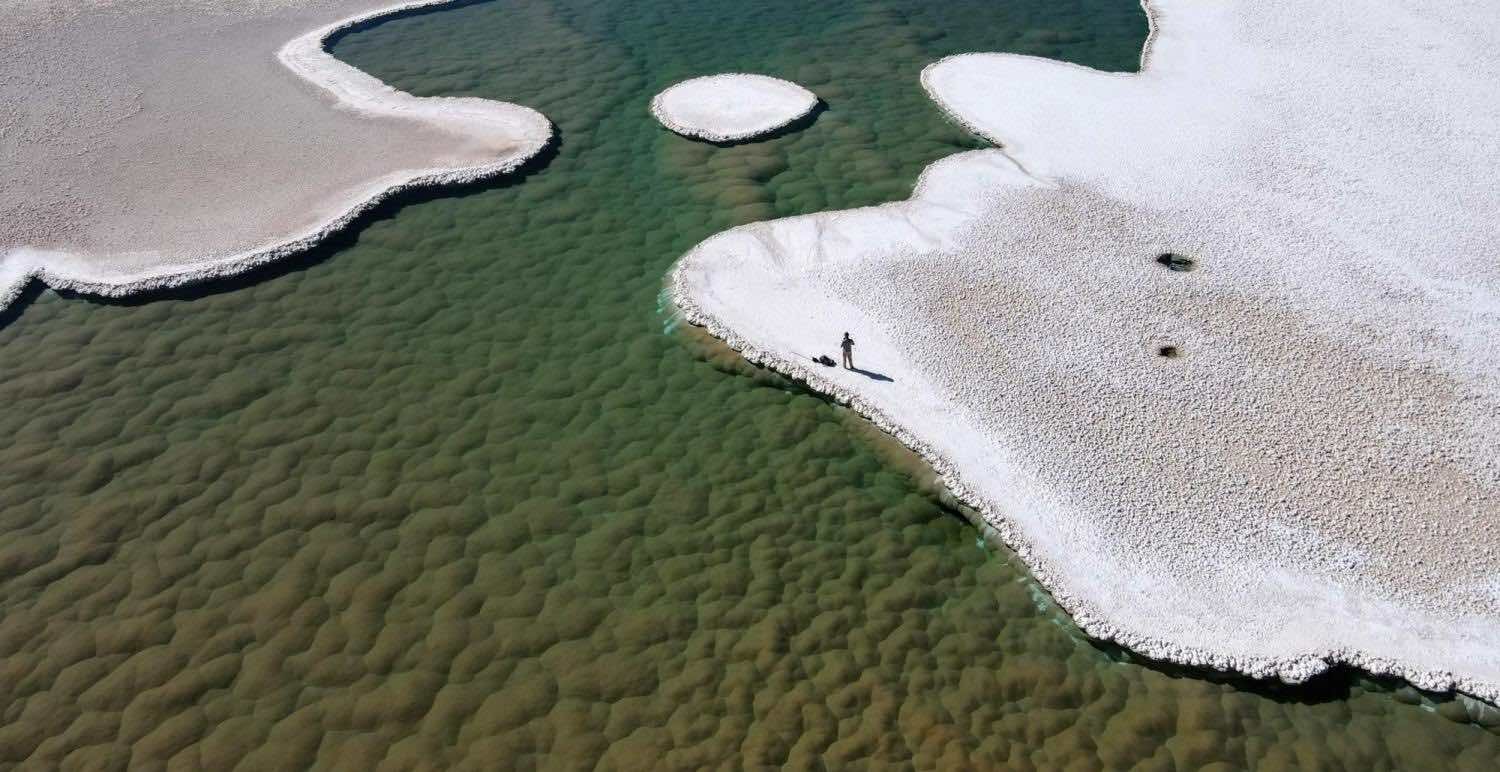An ecosystem scientists are calling an “alien” environment has been revealed in one of the most remote and arid regions of the world, a discovery that could shed light on the origins of life on Earth and how exotic life forms on other planets may come to exist.
12,000 feet above sea level amidst the salt plains located on a high plateau in Argentina’s Puna de Atacama—one of the world’s most arid and unforgiving environments—scientists have discovered a veritable lost world consisting of a series of watery lagoons.
Previously unknown to science, the environment may seem uninhabited at first glance. However, this alien world high above Argentina is home to a thriving population of complex microbial colonies known as stromatolites, which produce large mounds of rock as they grow over time, non unlike the formation of coral reefs in Earth’s oceans.


According to University of Colorado Boulder geologist Brian Hynek, who was involved in the discovery, the thriving microbial community in one of Earth’s most remote regions could offer scientists an unprecedented glimpse at how life in the distant past—specifically a period in Earth’s deep history called the early Archaean—might have allowed early organisms to spring into existence at a time when there was virtually no oxygen in our planet’s atmosphere.
“We have recently discovered what we believe to be a here-to-undescribed ecosystem on planet Earth hosted in laminated organo-sedimentary rock mounds known as stromatolites,” writes Hynek, a professor in the Laboratory for Atmospheric and Space Physics (LASP) and Department of Geological Sciences at UC Boulder, along with Mariá E. Farías, a microbiologist and co-founder of PUNABIO SA Environmental Consulting who also participated in the discovery.
“At the Argentinian saline lagoons we have explored, we have identified novel mineral assemblages and active microbial communities using metabolisms akin to the earliest examples preserved in the rock record,” they add.
According to Hynek and Farías, conditions similar to those observed at Argentina’s Puna de Atacama’s salt plains are likely to be very similar to those that existed on early Earth “and also possibly Mars”, which they say offer almost perfect modern proxies of “the oldest agreed upon macrofossils on our planet.”
Hynek said the lagoon is “unlike anything I’ve ever seen or, really, like anything any scientist has ever seen.”
Hynek and Farías hope to return to the lagoon in the near future to resume their studies of this unprecedented “alien” environment.
Hynek adds that it is “amazing that you can still find undocumented things like that on our planet,” adding that if life ever existed on nearby planets like Mars and managed to reach stages where fossil production could occur, “it would have been like this.”
“Understanding these modern communities on Earth could inform us about what we should look for as we search for similar features in the Martian rocks,” Hynek said in a news release.
Right now, the remarkable lagoon environment Hynek and Farías have discovered remains intact, although time is of the essence as far as future studies go: the area has recently been leased by a company specializing in lithium mining, whose plans to drill in portions of the lagoon could alter it irreversibly.
“This entire, unique ecosystem could be gone in a matter of years,” Hynek said, adding that while they hope to protect portions of the environment, this may be impossible, in which case efforts must focus on documenting the area as it currently exists “before it’s gone or disturbed forever.”
Hynek and Farías recently presented their findings at the 2023 meeting of the American Geophysical Union in San Francisco, with additional information about their discovery available online courtesy of UC Boulder.
Micah Hanks is the Editor-in-Chief and Co-Founder of The Debrief. He can be reached by email at micah@thedebrief.org. Follow his work at micahhanks.com and on X: @MicahHanks.

